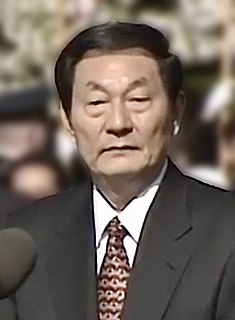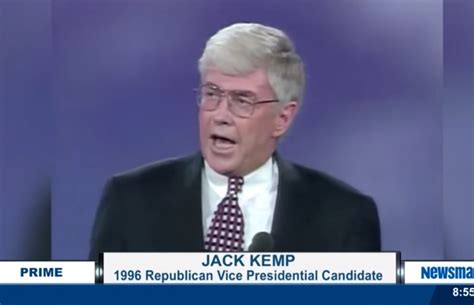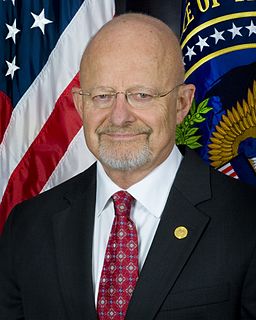A Quote by Daniel Patrick Moynihan
I have no doubt that there will continue to be bumps, some serious crises indeed in our relationship with China.... Neither membership in the WTO nor normalized trade relations with the United States will magically impose the rule of law on China or institute deep-seeded respect for human rights. But it certainly has potential to advance those purposes.
Quote Topics
Related Quotes
During the 1999 debate over Permanent Normal Trade Relations with China President Bill Clinton said, 'In opening the economy of China, the agreement will create unprecedented opportunities for American farmers, workers and companies to compete successfully in China's market. WRONG: Our trade deficit with China has increased from $83 billion in 2001 to a record breaking $342 billion in 2014.
I'm convinced after spending three weeks in China and Tibet, unless the United States gets its act together, our grandchildren will be living in a world dominated by the People's Republic. China is simply inexorable in its pursuit of wealth, growth and power. It cares little about human rights, democracy, labor protections, fair trade rules or the environment. It is relentless in advancing its national interests.
For all the tough talk about China during the presidential debates, Romney and Obama evaded any mention of China's suspect human rights record, corruption, and rule of law.
By not tackling these controversial topics, the candidates are protecting a strategic partnership with China at the expense of essential human values and beliefs.
For all the tough talk about China during the presidential debates, Romney and Obama evaded any mention of China's suspect human rights record, corruption, and rule of law. By not tackling these controversial topics, the candidates are protecting a strategic partnership with China at the expense of essential human values and beliefs.
When China got into the WTO, that allowed it to sell into any other country within the WTO - not just the United States - at the lowest tariffs that country offered. And the other countries could sell into China at the lowest tariffs that China offered. The problem, right off the bat, was that China had much higher tariffs than everywhere else, so the U.S. and Europe in particular got the short end of that stick.
Working together, we can build a world in which the rule of law - not the rule of force - governs relations between states. A world in which leaders respect the rights of their people, and nations seek peace, not destruction or domination. And neither we nor anyone else should live in fear ever again.
In 2006, I became the fist American to be allowed to go visit their astronaut center in China in Beijing. I think that it makes sense for the U.S. to work with China in the future and I hope to see, if the political atmosphere between the United States and China allow for us to do more cooperation together, especially in the area of human space flight. I think in the same way that it's help improve the relations between the U.S. and Russia; it would help to improve the relations between the U.S. and China.
Ronald Reagan, when he was campaigning for President, said that he would break relations with Communist China and re-establish diplomatic relations with Taiwan. But when he got into office, he pursued a very different policy of engagement with China and of increasing trade and business ties with China.
There are those who argue that the concept of human rights is not applicable to all cultures. We in the National League for Democracy believe that human rights are of universal relevance. But even those who do not believe in human rights must certainly agree that the rule of law is most important. Without the rule of law there can be no peace.
Obviously, what's happening in China right now is crucial, in the party congress, which as someone said has anointed a new emperor of China in President Xi. So there's the rise of China, and their active involvement in the United States internally in our business and financial realms. That certainly bears watching.
In the short term, it would not have made it possible to resume relations, because in the Chinese mind, the humiliation of China started with the annexation of Taiwan by Japan. If the United States had suddenly declared Taiwan as a separate state - for which we would have had no support among other nations - the consequences would have been giving up our relationship with China and committing ourselves to a long-term conflict with China.
































